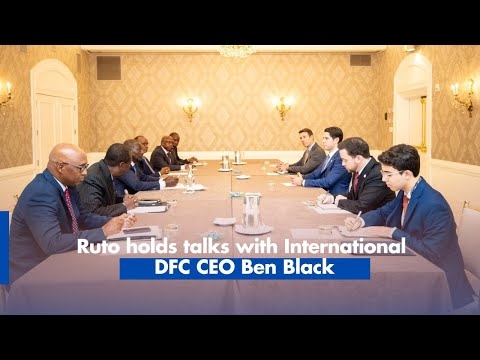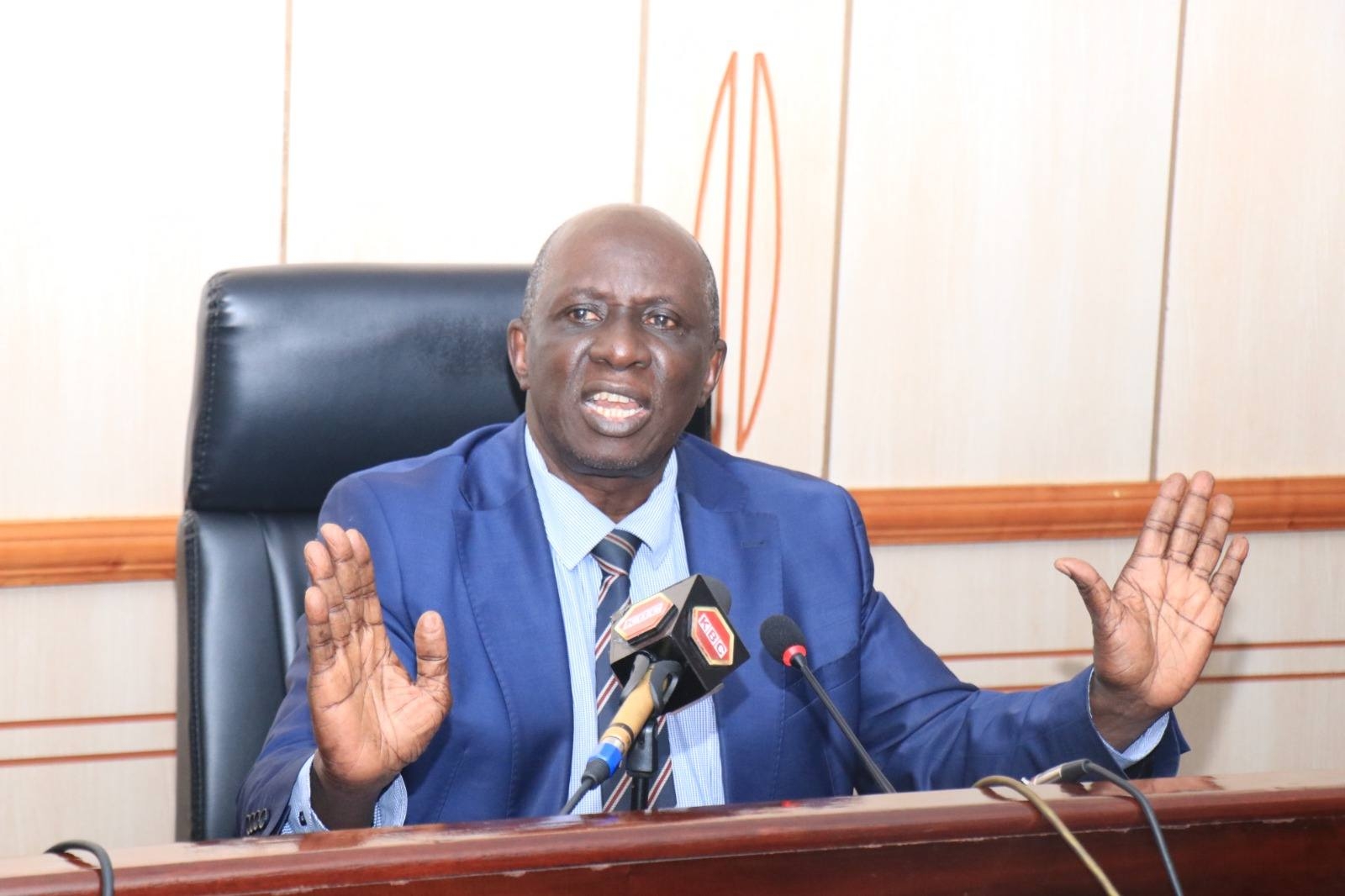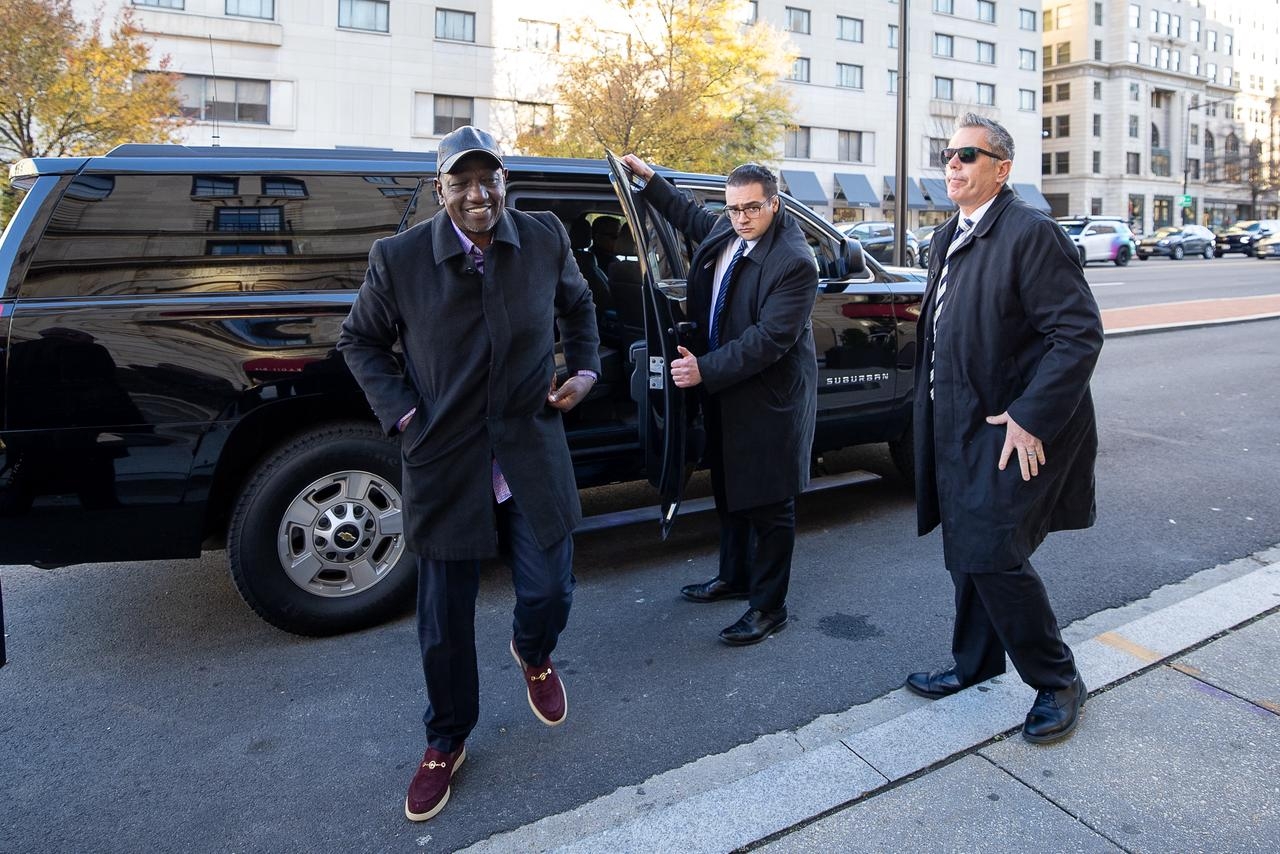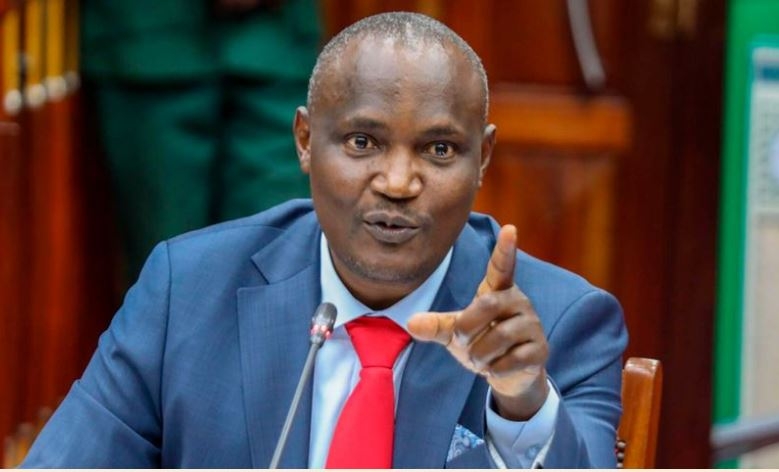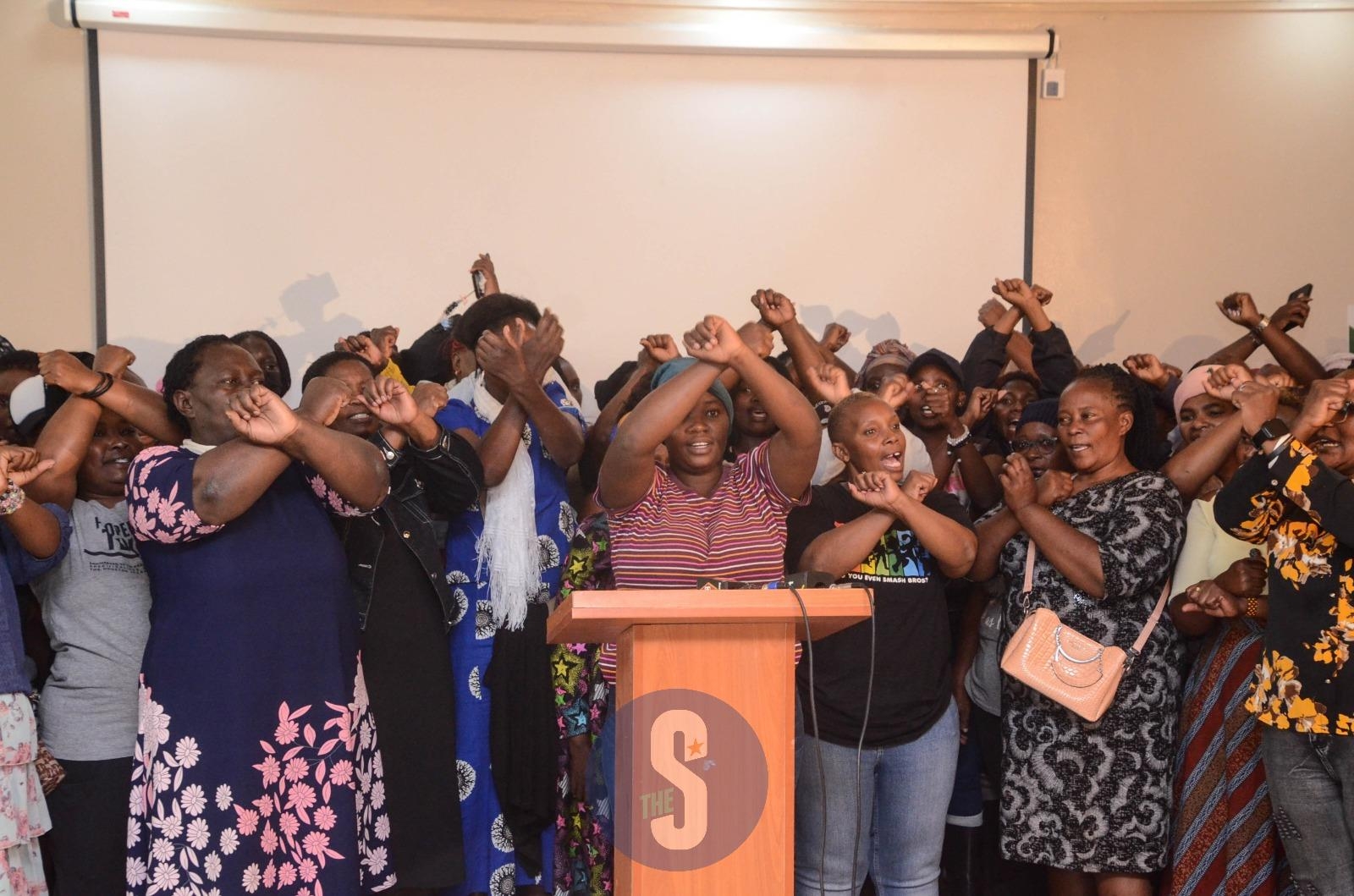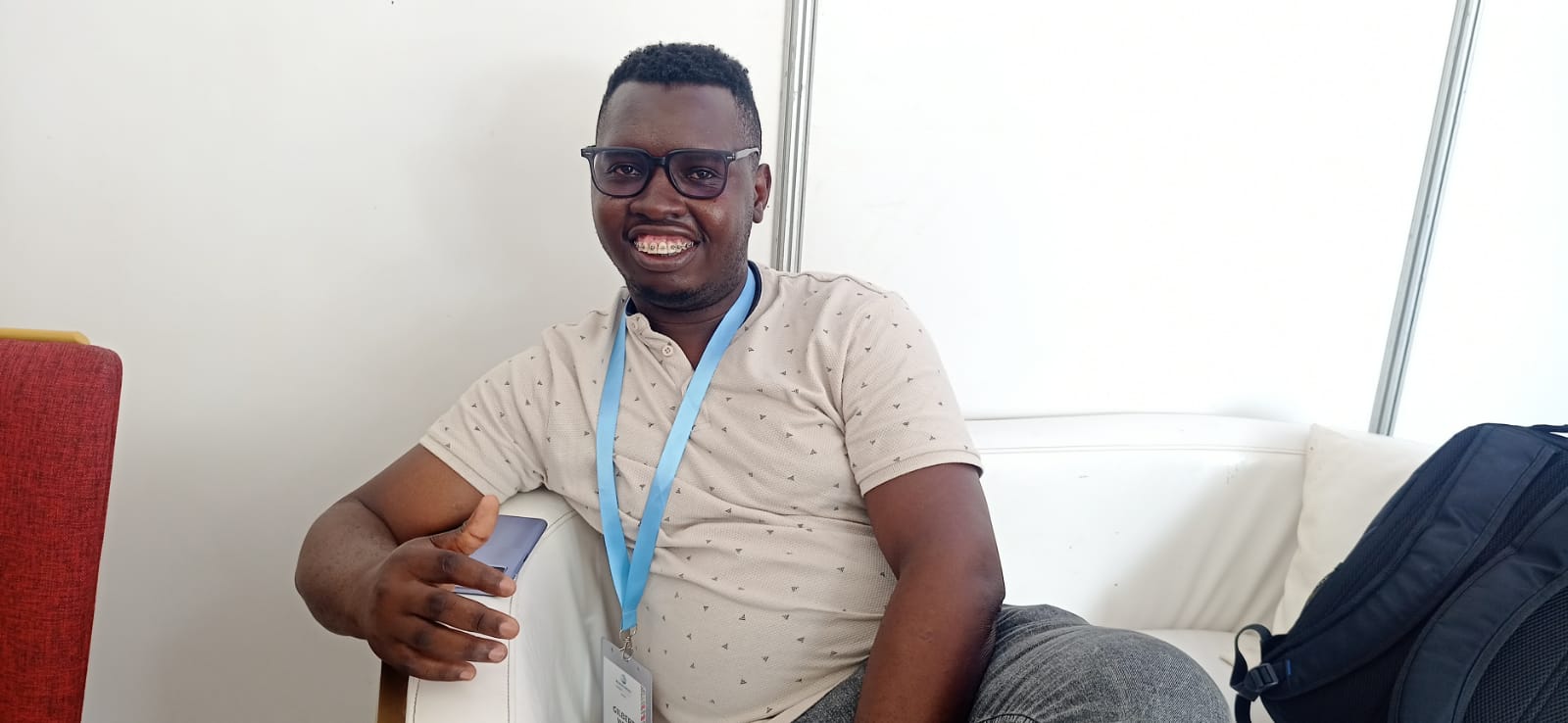
By BRIAN OTIENO
Raised by a single parent, life has not been easy for 29-year-old Gilbert
Were.
But that has not stopped him from pursuing a way out of poverty.
Born and raised in Mombasa, Were, the fifth born in a family of six
children, lost his father in 2002, when he was seven years old, and has since
been raised by his mother.
“To succeed, you start from thinking. In the 24 hours of a day, we spend
eight hours sleeping, eight hours working. What you do with the other eight
hours determines how successful you will be,” Were tells the Star.
He took those last eight hours just thinking, every day.
“Some say it is a crime, maybe, to be born poor. But I say it is an even
bigger crime to die poor,” Were says.
“Success requires a bit of luck but that luck follows hard work,” he
says.
Speaking with the Blue Radio CEO and Gilitics Media co-founder Were, you
would not imagine him walking from Mtopanga to Lights, six kilometres, just to
board a matatu for Sh20, to town.
That was what he could afford when he started hustling. From town, he
would walk to Kongowea Lights and wait for a ‘free boat’ home.
A free boat is a lift by public means; one does not pay the fare because
he or she is friends with the driver or the conductor.
Were says that during the long walks, he would reflect on his life and
life choices, evaluating and planning while on the go.
Together with his future Gilitics Media co-founder Johnson Mwangangi, he
would walk from Mtopanga to City Mall in Nyali, shower in the public washroom
at the mall and pretend to have reached the venue by Uber, just to look fresh
and well turned-out when meeting a potential investor or client.
“We had to make sure we looked neat and sharp because I had learnt the
value of image and public relations,” Were says.
After his high school at St Mary’s Ukwala in Siaya county, he spent
almost two years helping his mother sell groceries in Mtopanga.
“I had to cut kales and cabbage for clients. Sometimes she would send me
to deliver the vegetables to clients in their homes and this is where I started
learning the art of talking to clients and potential investors,” Were says.
In high school, he was in the journalism and computer clubs, which
spurred his interest in journalism and technology.
His interest in journalism pushed him to acquire a camera that he used to
take random photos.
In 2014, armed with computer skills from high school, he developed his
first website called kaziyangu.webs.com, which featured the village
entrepreneurs as a fun thing to do.
“I used to take photos of those who started and loved their own hustles.
I posted them on my website, which I shared with any Tom, Dick and Harry I
met,” Were says.
His local pastor saw his photos and contracted him to take photos of a
church or which he was paid for the first time for his work.
“He paid me Sh500 and I was so
excited,” Were says.
Through the website and Facebook he was linked with musician Wendy
Kimani, who wanted to work with him.
“I told her I do not have any experience and that I was just starting.
But she told me their organisation would train me,” he says.
Her organisation was Zoomin TV, a media and entertainment company in
Schiphol-Rijk, the Netherlands. It trained Were the basics of journalism for
three months, through the Deutsche Welle Academy.
“That is how I got my first job as the Zoomin TV correspondent in
Mombasa. I used to be a video journalist. We used to tell positive stories by
video,” he says.
In 2016, Were enrolled for a Bachelor’s degree in Business and IT at the
Jomo Kenyatta University of Agriculture and Technology, Mombasa campus.
Were says he met his Gilitic Media co-founders Mwangangi and Fadhil
Abdullah at JKUAT.
He worked for former Kisauni MP Ali Mbogo, becoming the man behind his
mantra “Elimu Kwanza, Si Wakali Kwanza,” as he enhanced his public image, which
catapulted him to the seat in 2017.
He then got to Nyali MP Mohammed Ali’s public relations team, before
resigning.
“At some point during my journey of self-discovery, I knew employment was
not for me,” Were says.
During a competition at Tech Bridge, his and his friends’ idea for a
media firm was dismissed by one person but embraced by another, and they
eventually won the competition, getting Sh100,000.
They used Sh30,000 to register a company. He shared Sh20,000 to
appreciate those who had helped him during his journey, sending them Sh1,000
each.
“I understood why the guy dismissed our idea. Tech Bridge were looking
for tech start-ups but our idea was different,” he says.
This is where Were and Mwangangi used to walk from home, shower at the
City Mall, change into fresh clothes and then get training at Tech Bridge.
This also happened at the NCBA Loop offices along Moi Avenue.
“We used to go there, make ourselves coffee and buy time at the offices,
because we were members, waiting for fares to come down or pass the time because
we did not have lunch money,” he says.
“That is where we started shooting our first videos,” he says.
The major breakthrough came in 2022 when he was asked to be an exhibitor
at the Pwani Innovation Week at Swahilipot Hub, where young people showcased
their creativity, innovation and business acumen.
Mahmoud Noor, the Swahilipot Hub founder, urged Were to be an exhibitor.
Were drew a blank but he took up the challenge. He then thought of the
blue economy space, which was relatively new at the time, and decided he would
link Gilitics Media with the sector.
At the exhibition, Belgian Ambassador to Kenya Peter Maddens was
impressed by Were and Mwangangi’s presentation. They had printed t-shirts
bearing the words ‘Blue Radio’ to link their radio idea to the ocean and blue
economy.
“He gave me his thoughts and
advice. The idea of Blue Radio was enhanced at the exhibition. From there I
went and created a website and called it www.blueradio.co.ke,” Were says.
In July 2022, he soft-launched the radio, which was online, and played
only music at first.
“I wanted to focus on the niche of blue economy but we had to be unique
in the presentation of the radio programmes. That is why I consulted widely,”
he says.
Between July and September, Were came up with the programming of the
online radio, while at the same time fundraising for a studio.
He raised around Sh150,000 but then a Belgian investor, named Dominique,
who had taken interest in their idea, matched the funds they had raised.
“We then had around Sh300,000 and we got another Sh200,000 from a gig we
did at Swahilipot. So we had Sh500,000,” Were says.
Dominique then arrived in Kenya and Were met him and again pitched his
idea.
Although he was not interested in media issues, he liked the zeal with
which the young men had pitched their idea and pledged to support them further.
Together with Mwangangi, he built the Blue Radio studio at Mtopanga and
named it after the Belgian investor, Dominique.
“We had been given space at Tech Bridge where we could meet our clients
but our studio was in some dungeon in Mtopanga,” Were says.
“We made sure we took all pour photos at the Tech Bridge space at City
Mall for public relations purposes,” he says, laughing.
They used to walk to the City Mall offices and sometimes stay home
because they could not afford to walk daily or spare their investment money for
fare.
Were says he chose the blue economy sector because it is relatively new
and has many opportunities that young people can venture into but still do not
know much about.
Through the Blue Radio platform, he informs young people and urges them
to learn about the sector, which has huge potential to alleviate poverty.
“So far, we have celebrated two years last September,” Were says.
He has been invited to five countries for talks about the blue economy
and opportunities for young people.
Were is now seeking partners and investors to expand business.
He says, “We are looking at around $100,000 (Sh12.9 million).






